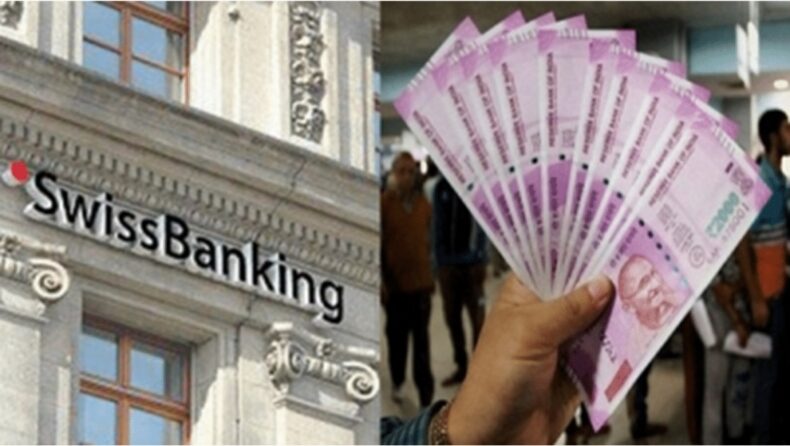Swiss bank has shared the fourth set of account details of Indian clients (on 11 Oct 2022) as part of the annual information exchange.
Under this process, the bank has shared the details of about thirty-four lakh account holders with 101 nations.
OECD designed the AEOI (Automatic Exchange Of Information) agreement on 9 Dec 2014. India and Switzerland entered into AEOI agreement on Jan 2018 which permits the sharing of such information.
The OECD (Organization of Economic Cooperation and Development) sets the guidelines for the AEOI agreement.
Under the guidelines, the shared data includes:-
– Name.
– address.
– country of residence.
– tax identification number.
– account balance.
– capital information.
– information concerning the reporting financial institution.
the shared data can be used only for tax purposes but cannot be publicized.
In 2014 OECD developed CRS (Common Reporting Standards) which allows every membered nation to share the foreign account data in its financial institutions with the respective nation.
India is not a full-time member of the OECD but it is a member of the OECD Development Center (joined in 2001) along with several other nations.
Under the AEOI, India has to date shared data with 78 nations and obtained it from 107 other nations.
Why Swiss bank is preferred

The major reason for secrecy, the bank maintains top secrecy of the data of account holders which makes it safe for all the money obtained from unscrupulous sources. Apart from this, there are several other factors:-
- Stable economy:-
Despite several economic crises around the world, Switzerland has maintained stable growth.

Even during COVID-19 Switzerland’s economy faced less contraction compared to other OECD nations.
- Privacy:-
The Great Council of Geneva introduced the banking regulations in 1713 AD which mandated the bankers to maintain the secrecy of clients. These hugely benefitted French royalties and European elites.
Further, in 1934 Switzerland constituted a law that criminalized sharing client information with foreign countries.
Article 47 of the Swiss Banking Act provides protection for the clients’ data from being shared with other nations except with the consent of the client or if the client is a law offender in his nation (tax evader, money launderer, bankrupt, etc.).
But with terrorism, corruption, and tax evasion on the rise, Swiss authorities (with some serious nudging from various countries) have now started rejecting those accounts which they suspect have illegal roots.
However, tax evaders have circumvented the money source by layering the money in small parts into financial markets and then depositing the profit return obtained from it into the bank.

- Ease of banking:-
An account holder must be present on spot and be 18+ years of age to hold an account in the Swizz bank. Apart from this, there is no exclusive requirement.
Accounts can be held in any currency (with dollars, pounds sterling, and euro being the preferred ones) and there is generally no minimum balance requirement to start an open account (no protection).
However, to get a secrete account (popularly called a numbered account), an initial deposit of $1,00,000 is required. secrecy.
Although there are color codes maintained, such as Black Money (tax-evaded money), White money (legitimately earnt), and Red money (money from an unknown source), the clients easily convert the doctored cash into white money by layering.
closing an account is very simple, which requires the account holder to be physically present on spot for the purpose.
Stats of accounts in Swiss bank
As of 2019, the UK holds a leading share of 27% of foreign funds followed by the US, West Indies, France, and Hong Kong, these top five nations account for 50% of average bank wealth.
While, Germany, Luxembourg, Bahamas, Singapore, and the Cayman Islands which constitute the top 10 (along with the previous top 5) account for 60% wealth.
While China, Jersey, Russia, Saudi Arabia, Australia, Pana, Italy, Cyprus, UAE, Netherlands, Japan, Guernsey, and India holds less than 1% of the wealth.
Among them, India ranks 77th (as of 2019).

Although the Government of India has reduced the deposits in Swiss banks through various measures, there has been a good rise in the deposits since 2018.
How is the Swiss economy benefitted
Swiss banks contribute 12% (CHF 17.1 billion or €15.8 billion) to Switzerland’s economy in 2020.
Switzerland’s GDP per capita for 2020 was $87,100, while China has $10,409 in 2020.

Swiss banks offer cheap loans which are the major source of revenue.

Read More –
https://tdznkwjt9mxt6p1p8657.cleaver.live/indian-black-money-law-vs-swiss-federal-court/













